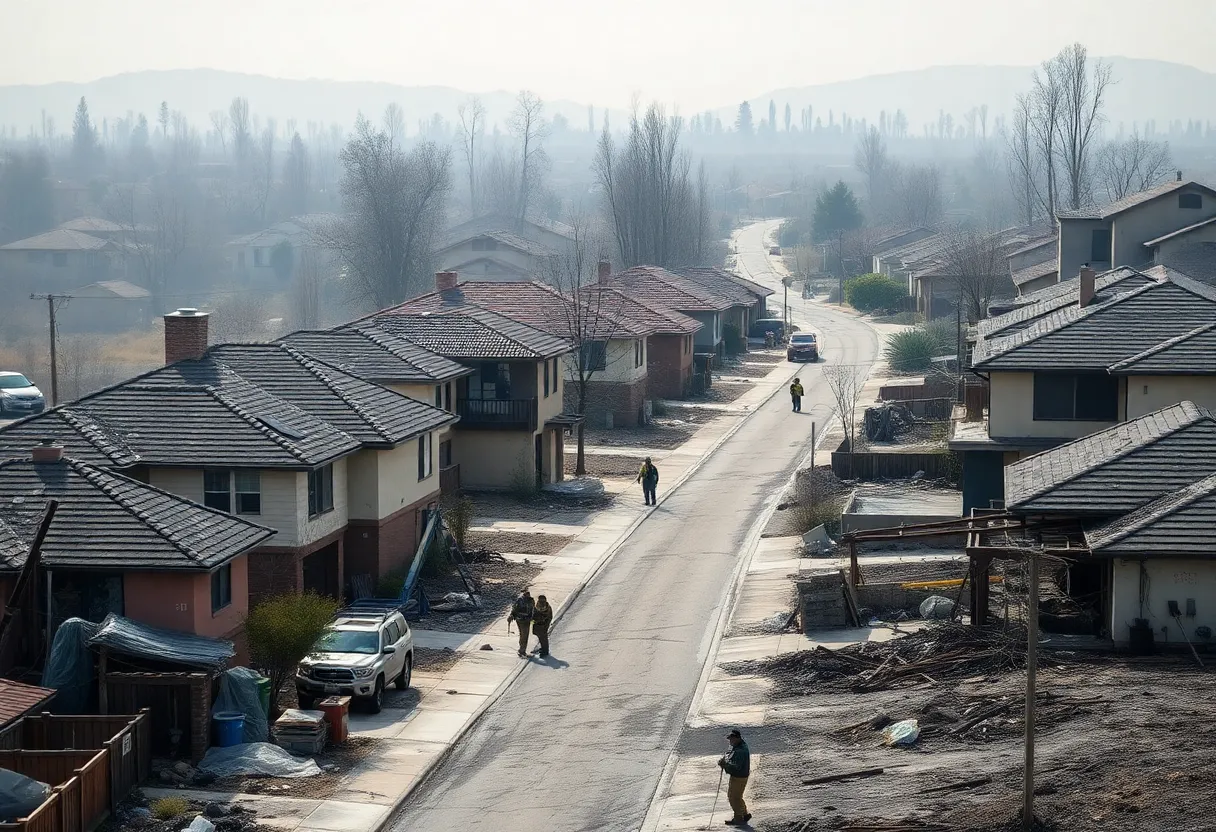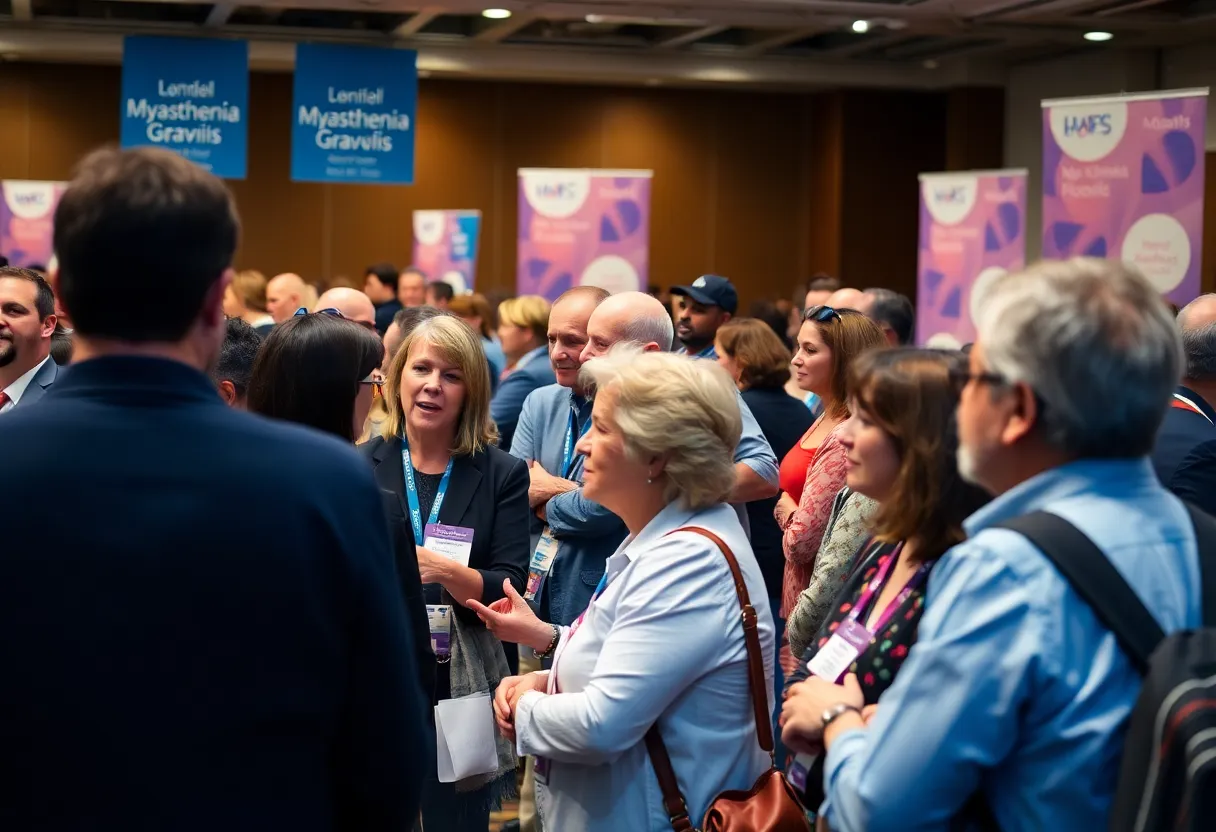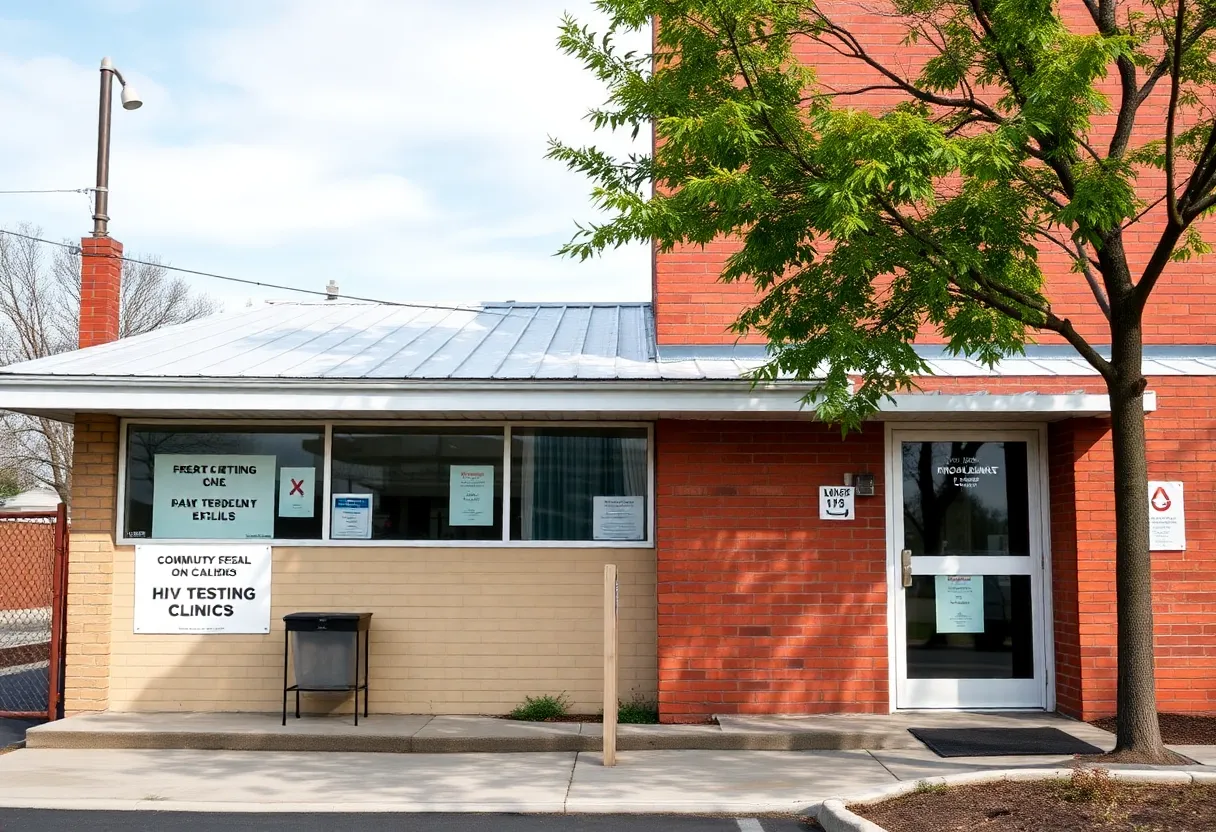News Summary
Homeowners affected by the recent Eaton and Palisades fires in Los Angeles are facing significant delays in rebuilding due to insurance complications. After receiving insurance checks, homeowners must navigate intricate requirements set by lenders to access funds for reconstruction. Many are struggling to gather necessary documentation while dealing with cleanup from toxic debris. This situation is exacerbated by rising insurance premiums and a complicated insurance system, particularly in wildfire-prone areas. The emotional and financial stress of rebuilding is evident as communities strive to recover from the devastation.
Insurance Complications Slow Rebuilding Process for Homeowners After Wildfires
The recent Eaton and Palisades fires in Los Angeles have left homeowners in a bit of a pickle, and many are finding the road to rebuilding their lives is filled with unexpected bumps. For some, like Christopher Antola, the process has proven not only frustrating but also painfully slow.
Antola’s home in Pacific Palisades was completely devastated when the fire spread rapidly, causing his roof to catch fire and everything to collapse. Although he was fortunate enough to receive an insurance check swiftly, the journey didn’t end there. The check was made out not just to him, but also to his lender, which added a whole new layer of complication to the situation.
So, what does this mean for homeowners like Antola? It means that before he can get his hands on that cash to start rebuilding, his lender requires him to provide several key documents. This list includes a signed building contract and details about the contractor he plans to work with. Now here’s where the plot thickens—getting these documents isn’t something that happens overnight; it could take months, if not years, to secure them after a wildfire.
Insurance experts have weighed in, noting that homeowners who don’t own their property outright often face significant delays in their rebuilding efforts. It turns out that lenders are a bit cautious when it comes to handing over insurance checks. They prefer to get confirmation that homeowners are indeed planning to replace the property that was lost in the flames before they endorse any checks.
For homeowners like Antola, negotiating with lenders to gain access to those insurance funds can feel like navigating a maze. Financial professionals recommend that homeowners should put their requests for partial disbursements in writing, which might help speed things along a bit. Unfortunately, this means some homeowners end up paying for initial rebuilding expenses out of their own pockets while their insurance money sits tied up in escrow.
Antola expressed frustration over this seemingly irrational process. He highlighted the real problem: securing essential services—like architects and engineers—takes time and money, both of which are often in short supply after such disasters.
On a slightly brighter note, First Citizens Bank, Antola’s lender, has mentioned they’re trying to offer options to assist customers during this tough rebuilding period. After all, they know the emotional and financial toll that wildfires take on families.
Before any real rebuilding can begin, homeowners need to tackle another challenge: the cleanup of their properties. This means dealing with toxic debris, which is especially crucial after widespread destruction. The recent fires have caused extensive damage across Southern California, tragically resulting in the loss of 29 lives and the destruction of over 16,000 structures.
In California, homeowners face the added challenge of navigating the state’s FAIR Plan insurance, particularly in wildfire-prone areas. While this plan provides some coverage, it often falls short of truly meeting homeowners’ needs. In fact, many homeowners rely on it simply to satisfy mortgage requirements rather than seeing it as a comprehensive solution.
Insurance companies are feeling the heat, with State Farm recently paying out around $1 billion in claims from these catastrophic fires, a clear indicator of the event’s magnitude. Analysts at Verisk and CoreLogic estimate insured losses could reach staggering figures between $28 billion to $45 billion, with some experts suggesting it could even climb as high as $75 billion. These escalating losses have been pushing insurance premiums higher, affecting how homeowners in high-risk areas manage their coverage options.
As if all that wasn’t enough, the operational delays caused by necessary cleanup can significantly slow the rebuilding process, creating further hurdles for residents eager to get back to their normal lives. The emotional distress of losing one’s home, combined with the financial headaches posed by insurance negotiations, can make recovery feel overwhelming.
It’s clear that the interplay between the insurance world and the realities of rebuilding after wildfires is complex and frustrating. With climate change contributing to an increase in the frequency and severity of these wildfires, homeowners are finding themselves faced with more challenges than ever before. The road to recovery is long, but together, communities can find ways to support each other and move forward.
Deeper Dive: News & Info About This Topic
- Vox: Insurance Complications in Pacific Palisades
- Fortune: Homeowner Insurance Issues in California
- NBC Los Angeles: Impact of Wildfires on Home Insurance
- Reuters: Wildfires Spark Insurance Anxiety in Los Angeles
- Daily News: Rebuilding Efforts in Pacific Palisades
- Wikipedia: Wildfire
- Google Search: California homeowner insurance challenges
- Google Scholar: Wildfire insurance claims
- Encyclopedia Britannica: Wildfire
- Google News: Wildfire rebuilding California








